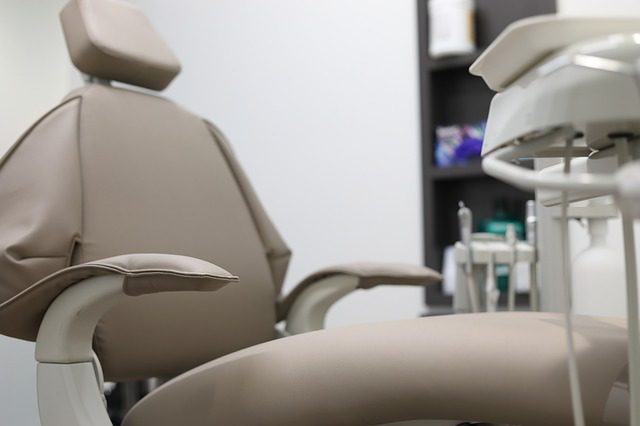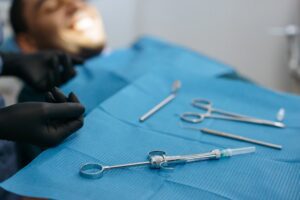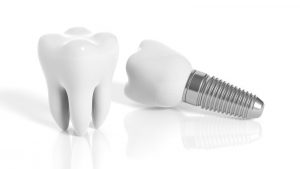Maxillofacial surgery is a unique branch of oral surgery in that it combines dentistry with surgical skill and specific knowledge about the structures of the face, mouth and neck. Maxillofacial surgeons treat trauma and diseases affecting the head and neck.
Generally, your dentist will recommend an oral surgeon to you, though you’re free to see any maxillofacial surgeon you wish. But the process generally starts in a dentist office. He or she will recommend you for oral surgery treatment that they can’t do themselves. It’s not possible to be an expert at everything; that’s why there are specialists like oral surgeons and maxillofacial surgeons. The intricacy of the oral surgery you require will determine which type of specialist your dentist recommends.
Education Required of Maxillofacial Surgeons
Maxillofacial surgeons have completed an undergraduate degree as well as a doctoral study in dentistry. Then they must complete four to six years of advanced surgical training. They learn to treat a wide variety of treatment options for patients who have experienced facial trauma, dental misalignment, temporomandibular joint (TMJ) disorder, and other oral health issues that require surgery.
Maxillofacial surgeons are also certified to administer all forms of sedation dentistry, including local to general anesthesia as well as nitrous oxide, oral conscious, and IV sedation.
Issues Treated by an Oral Surgeon
There are a number of issues an oral or maxillofacial surgeon may treat. These can include:
Impacted Wisdom Teeth
Wisdom teeth often emerge from the gum line without enough room from the surrounding teeth to grow. This can cause sore gums and infections in your gum tissue. If not removed, impacted wisdom teeth can also cause permanent damage to nearby teeth, gums, and bone. This can result in the formation of cysts or tumors which can further damage the jawbone.
An oral surgeon can remove your wisdom teeth to avoid these problems — ideally in your early 20s, though you can get them out at any age. There just tend to be more complications the older you are. And if your wisdom teeth are impacted, you may need a dental bone graft for wisdom teeth, which definitely requires a specialist.
Tooth & Bone Loss
When you need a tooth extracted, an oral surgeon can remove it — especially if it’s in a difficult to reach place or there are other complications such as a partially shattered tooth. And if you are missing any teeth, your best option for tooth replacement are dental implants. A maxillofacial surgeon is trained at setting dental implants, including same day dental implants so you can have the entire dental implant surgery completed on a single day.
Not all patients are ideal candidates for dental implants. Deterioration of the jawbone, common in patients who are missing teeth, may make it difficult for the mouth to accept dental implants. In this case, dental bone grafting surgery can strengthen your jawbone by taking bone from other places of the body and inserting it into your jaw.
Facial Trauma/Injury
If you’ve suffered facial trauma such as a fractured or dislocated jaw, an oral surgeon can see you quickly to reset the jawbone. Maxillofacial surgeons routinely see people who have suffered from facial trauma, whether it’s the result of an injury, abuse, or an accident.
Sleep Apnea
Do you suffer from sleep apnea? An oral surgeon may be your solution to sleep soundly without snoring or the need for a sleep machine. People with sleep apnea often suffer from a poorly positioned jaw or they have a large amount of soft tissue that interferes with their airways. We can correct these problems through oral surgery.
Problems with Your Jaw/Joint
Your jaw is connected to your skull by the temporomandibular joint (TMJ). Sometimes problems with this joint can result in pain in your jaw, jaw-popping, stiffness, and headaches. Fortunately, these problems can be often treated through medication and physical therapy. But sometimes oral surgery is required for more advanced cases.
Sometimes your jawbone isn’t aligned properly, resulting in an overbite. Your dentist may recommend you to a maxillofacial surgeon for orthognathic surgery.
Ill Fitting Dentures
For people wearing dentures for the first time, an oral surgeon can treat any jawbone irregularities so the dentures will fit better. As you wear dentures, your jawbone will deteriorate, causing your dentures to fit poorly. An oral surgeon can add a dental bone graft to help support your jawbone so your dentures fit better.
The mouth and jaw are an extremely intricate system that is interlinked with other bodily systems, like the sinuses, respiratory and digestive systems. So if your dentist recommends you to an oral surgeon or maxillofacial surgeon, don’t be worried, it just means they want the best care for you. Complex issues require specialized knowledge that falls outside of the dentistry practice.










